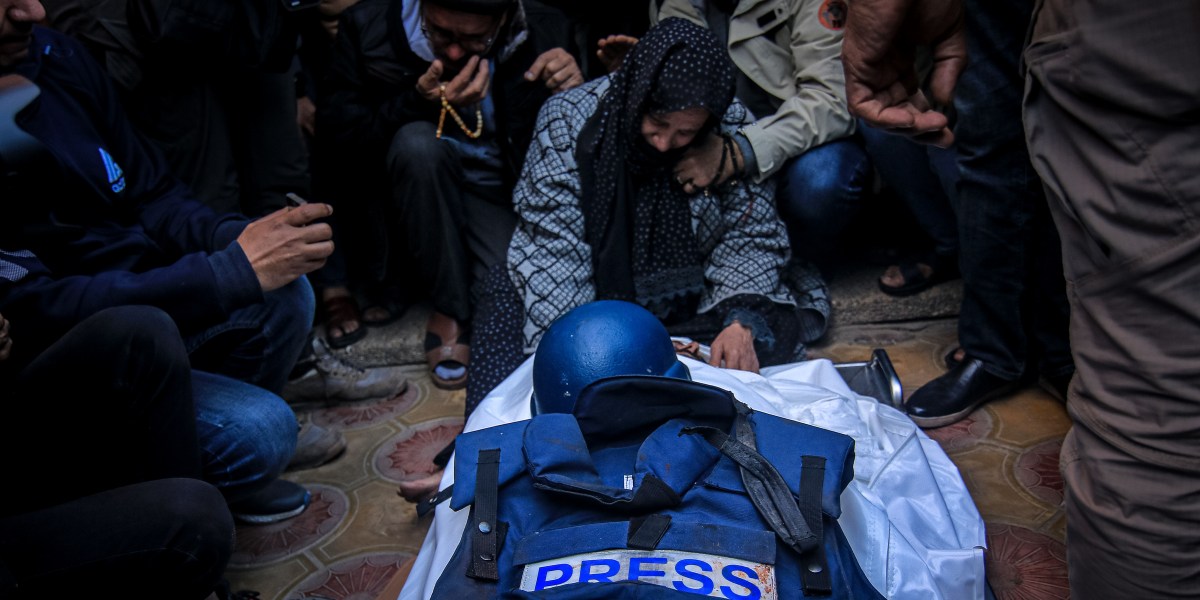“IT WAS AS if a storm had targeted us.” On the afternoon of December 15, an Israeli airstrike slammed into the Farhana school in Khan Younis where Al Jazeera Gaza bureau chief Wael al-Dahdouh and his cameraman, Samer Abu Daqqa, had just wrapped up filming the aftermath of an earlier bombardment in the area.
Dahdouh was thrown to the ground. “I lost balance to the point of faintly losing consciousness until I regained my strength,” he told The Intercept. “I tried to get up in any way because I was sure that another missile would target us — from our experience that’s what usually happens.” Dahdouh realized he was bleeding profusely from the arm and that if he didn’t get medical attention, he would die. He had also temporarily lost much of his hearing from the blast. He looked over and saw the three Civil Defense workers who had been accompanying the two journalists had been killed.
“In those milliseconds I thought I couldn’t offer him anything. I couldn’t. And he couldn’t move, he couldn’t get up.” Then, he saw Abu Daqqa lying on the ground some distance away. “He was trying to get up and it seemed like he was screaming,” Dahdouh said. “In those milliseconds I thought I couldn’t offer him anything. I couldn’t. And he couldn’t move, he couldn’t get up. I decided to take advantage of the remaining glimmer of hope, which was to try to go towards the ambulance.”
Dahdouh somehow managed to make his way across the rubble to an ambulance hundreds of meters away and was evacuated to a nearby hospital. But Abu Daqqa, wounded in the lower part of his body, could not walk to the ambulance and was left lying on the ground. Hours went by, but emergency workers were unable to reach him without approval from the Israeli military. As his life slipped away, Al Jazeera posted a live counter on its broadcast showing the number of hours and minutes since Abu Daqqa had been wounded. When emergency crews were finally able to reach Abu Daqqa over five hours later, he was dead.



Here is an alternative Piped link(s):
The Washington Post
Piped is a privacy-respecting open-source alternative frontend to YouTube.
I’m open-source; check me out at GitHub.